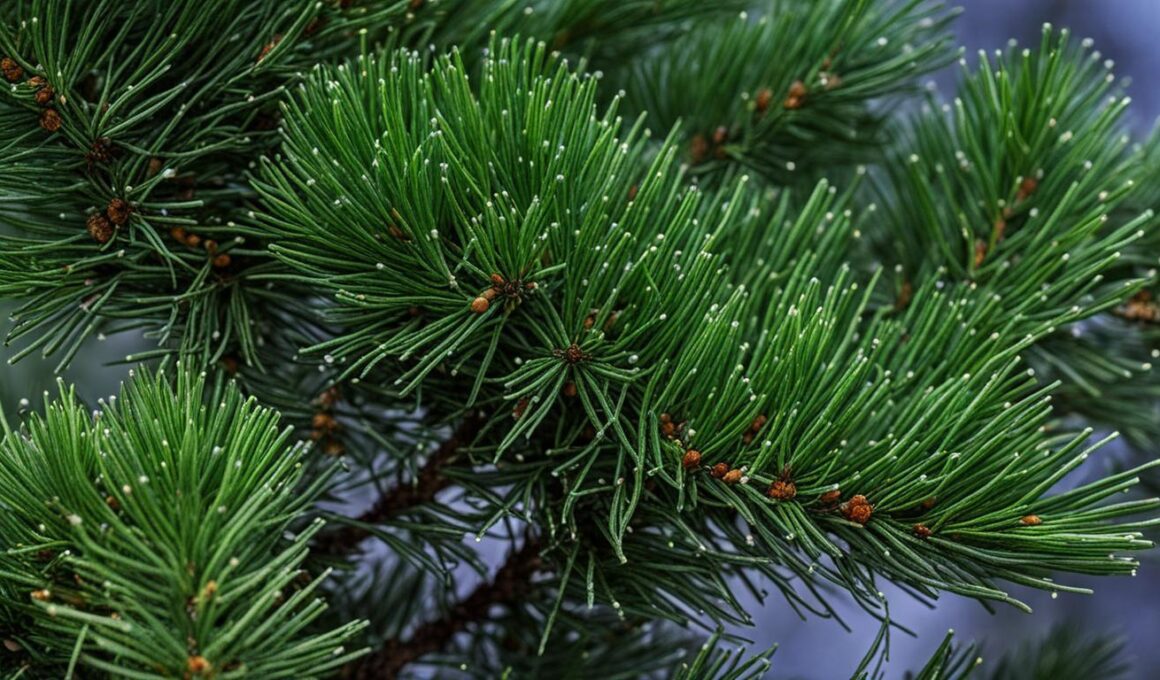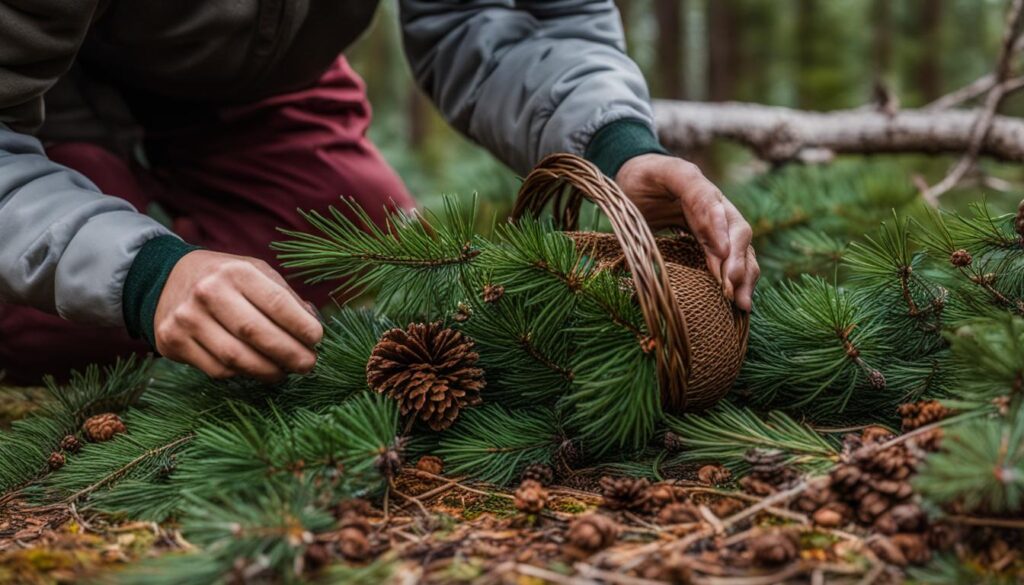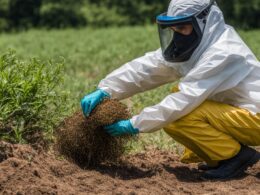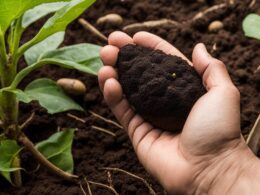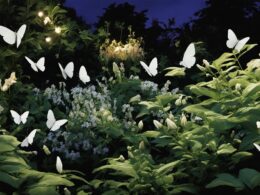If you’re a gardener or landscaper, it’s essential to be aware of the risks and characteristics associated with evergreen trees with poisonous seeds. Understanding these aspects is crucial for safe gardening and landscaping practices.
One particular evergreen tree that is often associated with poisonous seeds is the Yew tree (Taxus baccata). Native to Western Europe, Central Europe, and Southern Europe, the Yew tree is primarily grown as an ornamental tree. However, it’s important to note that most parts of the Yew tree are poisonous, with toxins that can be absorbed through inhalation and skin contact. Even a small amount of the foliage can be deadly if consumed.
With the knowledge of the risks posed by the Yew tree, it’s crucial to ensure safe gardening and landscaping practices. By being aware of the characteristics of evergreen trees with poisonous seeds, you can make informed decisions and take necessary precautions to prevent any potential harm.
Common Edible and Medicinal Evergreens
While it is important to understand the risks associated with the Yew tree, it is also worth noting that not all evergreen trees have poisonous seeds. In fact, many evergreens are considered edible and have medicinal properties. According to the sources, common edible and medicinal evergreens include pine, hemlock, juniper, and cedar.
- Pine: Pine trees are not only known for their beautiful cone-shaped decorations during the holiday season but also for their edible and medicinal benefits. The needles of pine trees are rich in vitamin C and can be used to make teas and infusions for respiratory health.
- Hemlock: Hemlock trees have been used for centuries in traditional medicine. The bark, leaves, and twigs of hemlock trees contain beneficial compounds that have been used to treat respiratory issues, digestive problems, and skin conditions.
- Juniper: Juniper trees are well-known for their aromatic berries, which are often used as a spice in cooking. These berries not only add flavor to dishes but also possess medicinal properties, such as improving digestion and promoting urinary health.
- Cedar: Cedar trees have a long history of medicinal use by various cultures. The leaves and bark of cedar trees can be brewed into teas or used in baths to soothe skin conditions and promote relaxation.
These trees are often used in herbal preparations and are a rich source of vitamin C. Native Americans are said to have shown settlers how to eat evergreen needles to prevent scurvy. However, it is important to positively identify any plants before harvesting them, as some evergreens may have similar characteristics to the Yew tree and can be toxic.
Making Evergreen Oil
Evergreen trees are not only beautiful additions to your garden or landscape, but they can also be used to create herbal preparations with numerous health benefits. One such preparation is evergreen oil, which is known for its medicinal properties.
Evergreen oil offers a range of benefits, including pain relief, antiseptic, antimicrobial, and anti-tumor effects. It can be used for various purposes, such as massage or topical applications.
To make evergreen oil, you’ll need to harvest the young light green tips of the evergreen tree. These tips are packed with the beneficial compounds that give the oil its medicinal properties. It’s important to choose a dry day for harvesting to ensure there is no moisture on the leaves, as this can lead to mold formation during the processing.
Once you’ve gathered the evergreen tips, you’ll need a jar and organic olive oil. Simply stuff the tips into the jar and fill it with the olive oil, ensuring that the tips are fully submerged. Let the mixture sit for about six weeks to allow the oil to infuse with the beneficial compounds.
After the six weeks have passed, it’s time to strain the oil. Use a fine mesh strainer or cheesecloth to separate the infused oil from the plant material. The strained oil can then be stored in a clean container or amber glass bottle for future use.
With your homemade evergreen oil ready, you can enjoy its medicinal benefits. Apply the oil topically to relieve pain, as it has natural analgesic properties. Its antiseptic and antimicrobial properties make it useful for treating minor wounds, cuts, and scrapes. Additionally, the anti-tumor properties of evergreen oil make it a potential complementary treatment option for certain types of cancer.
Remember, always consult with a healthcare professional before using any herbal preparations for medical purposes. While evergreen oil can offer potential health benefits, it’s important to understand its proper usage and any potential interactions with other medications or conditions.
Conclusion
In conclusion, it is essential for gardeners and landscapers to be aware of evergreen trees with poisonous seeds, such as the Yew tree. Understanding the risks and characteristics associated with these trees is crucial for maintaining safe gardening and landscaping practices. By being knowledgeable about the different types of evergreen trees and their properties, individuals can make informed decisions while also benefiting from the medicinal properties of certain evergreens.
While some evergreen trees have poisonous seeds, not all of them pose a threat. Many evergreens, including pine, hemlock, juniper, and cedar, are considered safe for consumption and even have medicinal properties. These trees can be incorporated into herbal preparations, such as making evergreen oil, which offers benefits like pain relief, antiseptic qualities, antimicrobial effects, and even anti-tumor properties.
By incorporating these safe evergreens into gardening and landscaping, individuals can create beautiful and functional outdoor spaces while also harnessing their unique medicinal properties. However, it is crucial to positively identify any evergreen trees before harvesting, as some may have similar characteristics to the Yew tree and can be toxic. Safe gardening and landscaping practices combined with the use of evergreens with medicinal properties can not only enhance the aesthetic appeal of your environment but also contribute to your overall well-being.
Are Persimmon Tree Seeds Poisonous?
Persimmon tree seeds are not typically considered poisonous, but they can cause intestinal blockages if consumed in large quantities. It’s important to be aware of persimmon tree appearance characteristics to identify the seeds and avoid any potential issues. Always exercise caution when handling and consuming persimmon seeds.





